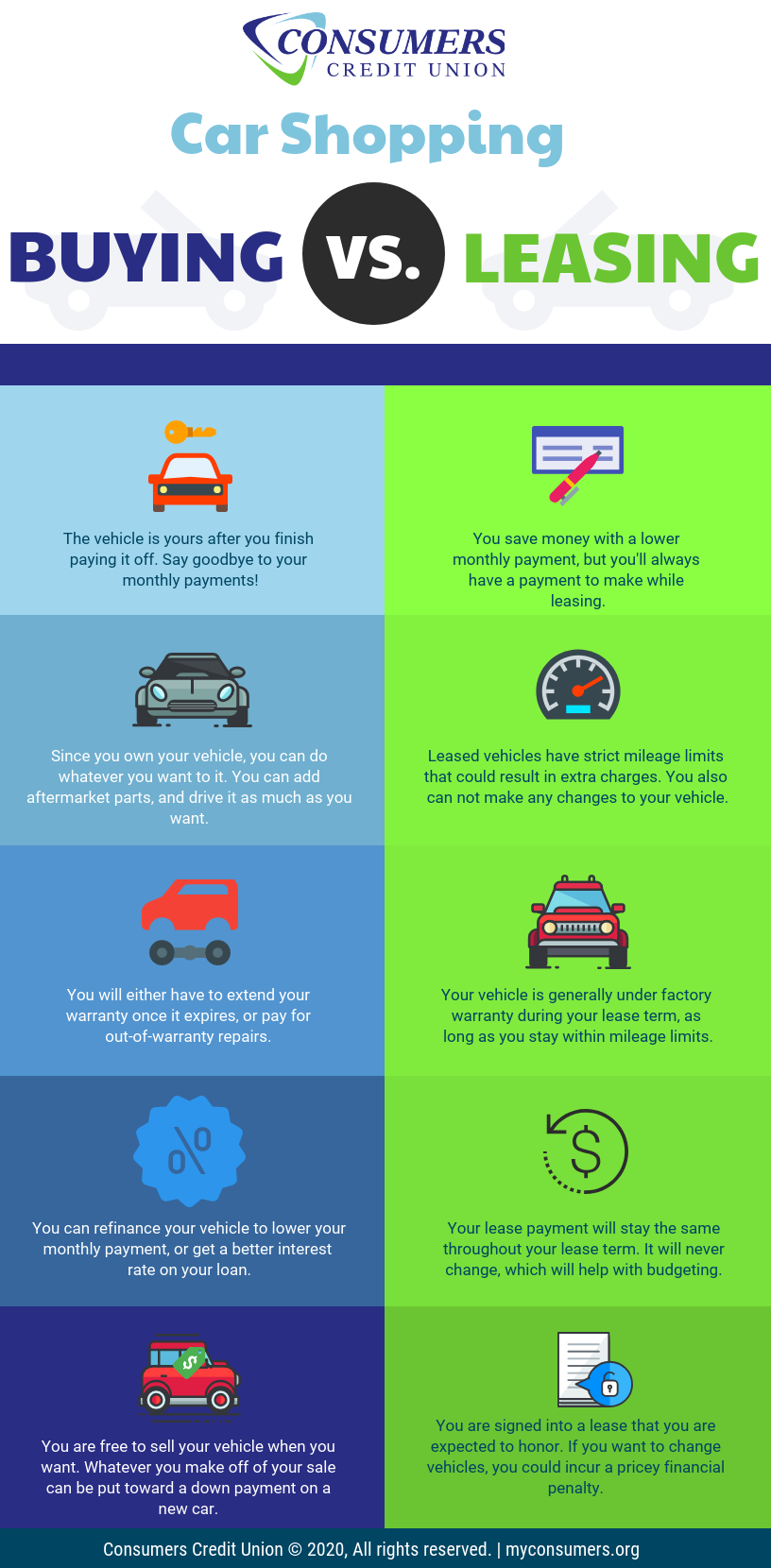Deciding Whether to Buy or Lease a Car
Deciding to buy a car or lease is a big financial decision to make. It adds hundreds of dollars to your monthly expenses, and that doesn't even factor in other routine maintenance and gas.
In this blog, we'll go over some of the pros and cons of buying or leasing a new vehicle.
Pros of Leasing a Car
There are plenty of positives if you choose to lease a vehicle instead of buying.
Generally, you can expect to have a lower monthly payment than if you owned the same vehicle. This is because you are only paying for the expected depreciation during your lease term, rather than the full price of the car. This may allow you to lease a nicer vehicle with the latest features.
Your vehicle will likely be under factory warranty during the duration of your lease, as long as you stay within the mileage limits. There's no need to worry about costly repairs that are out of warranty like car owners do.
Finally, when it comes to trade in your car, it's a smoother process. There is no need to haggle over the resale value of your car with a salesman, just return your vehicle and upgrade to the next one.
Cons of Leasing a Car
Conversely, there are some negatives to leasing, the most obvious one being that you don't own the vehicle and have no assets after lease term. While you may be saving money on your monthly payments, those monthly payments are never ending and will be a fixture of your expenses beyond the typical 60-month car loan. Those payments are not really negotiable mid-lease either, unlike car loans that can be refinanced if you need to rework your budget.
Most leases also have mileage limits, which means you could have to pay mileage charges if you go over your set limit. It may be better for you to buy your new vehicle if you plan on putting a lot of miles in.
Pros of Buying a Car
One of the biggest advantages to purchasing your new car or SUV is that it is yours to own once it is paid off. That means no car payments, which will free up hundreds of dollars a month once your car loan is out of the picture.
Owning a car also means that you have something to sell when you're ready for a new car. That money can be put towards the down payment of your next vehicle. You are even free to make modifications that can boost the resale value.
Choosing to purchase a new vehicle also gives you better financial flexibility. Leasers have rigid monthly payments that can't be renegotiated once the lease is signed. If you desire, you can refinance your vehicle loan to reduce your monthly payment, or get a better interest rate.
Cons of Buying a Car
There are some downsides when it comes to car ownership.
Once your vehicle is out of warranty, you are on the hook for repairs. These can become costly in order to keep your vehicle in drivable condition, unless you choose to extend your warranty.
Unfortunately, once your new car or truck rolls off the sales lot, it starts to depreciate. Car payments are a little more expensive than a lease, plus they have interest.
CCU Auto Loans
Fortunately, Consumers Credit Union has auto loans with low, fixed interest rates with flexible terms to meet your needs.
Fill out an auto loan application today to see the great options Consumers Credit Union has to get you inside your dream car.



 ;
;